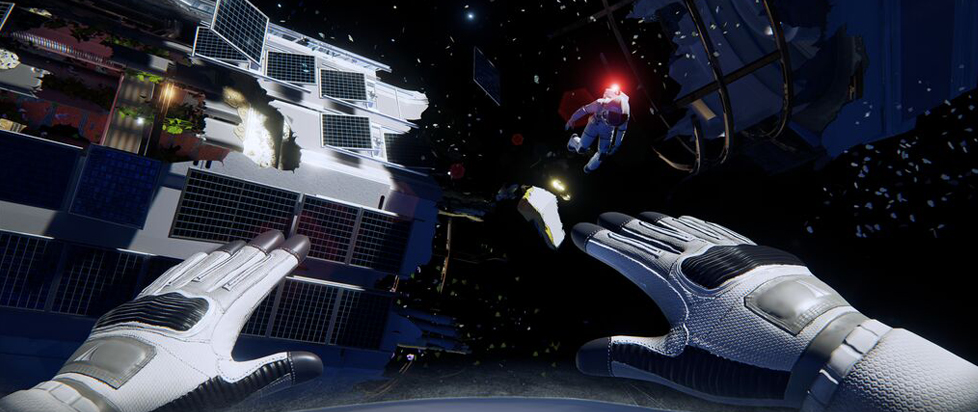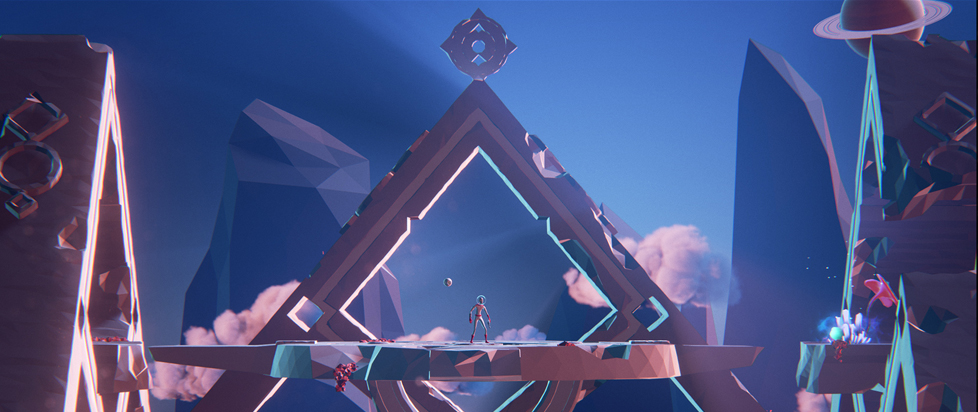
Revving the Engine: Quest-Based Learning
The following is a reprint from Unwinnable Weekly Issue Sixty Four. If you enjoy what you read, please consider purchasing the issue or subscribing.
This series of articles is made possible through the generous sponsorship of Epic’s Unreal Engine. While Epic puts us in touch with our subjects, they have no input or approval in the final story.
———
What if the very systems that we enjoy interacting with in videogames formed the basis of the best way to learn how to make videogames?
That’s what Dr. Cynthia V. Marcello is attempting to find out with her quest-based learning program at SUNY Sullivan. Dr. Marcello, who founded the Simulation and Game Development major, devised a way to teach the inner workings of Unreal Engine 4 to her students using a mesh of quests that mirror basic character progression in any given RPG.
After a demonstration, students take on a small project, the equivalent of a tutorial quest in an RPG, a rat-hunt, say. Each quest leads to other quests, tied to specific functions of the engine. As students complete quests, they are awarded XP, which in turn allows them to join larger group projects, earn badges and climb the ranks of the class leaderboards.
All of these things are second nature to anyone who has spent more than a cursory amount of time playing videogames. It seems like a kind of perfect destiny that these same systems would be handy in making videogames.
Dr. Marcello was kind enough to discuss her work, her thoughts on gamification and the development of her quest-based learning program.
Can you tell me about your background? How did your career come to intersect with videogames?
I have a varied background that started when I was an undergrad at Lehigh University. I majored in psychology and was always intrigued about the impact of the computer on human behavior. During my studies, I ran several research projects involving the impact of videogames on the behavior of both adults and children. At the same time I was studying at Lehigh, I started a computer consulting business offering a variety of services including programming, software development and database development.
Seeking to be able to better make a business case for information technology, I went back to school and received my Master of Business Administration. I continued to run my business and given my penchant for research, I went back to school and received my Doctor of Management with a specialization in Information Systems and Technology in 2010.
In 2007, I started as an adjunct at SUNY Sullivan, mostly because I like teaching and I enjoy sharing my background and experience to students in the classroom. I eventually was hired full time at the college and I began thinking about how I could promote an interdisciplinary approach to my discipline. My goal was to integrate the left and right sides of the brain in the most balanced way possible to accomplish a diverse, yet rigorous game design degree. In 2011, I started the Simulation and Game Development degree at SUNY Sullivan, which I believe accomplishes the goal of best preparing the student to be exposed to a variety of career pathways in the game design and development industry.
In the broadest sense, can you talk about your thoughts on gamification and its benefits?
Gamification engages the individual by encouraging them to meet their own hierarchy of challenges. In this there is a sense of autonomy and flexibility because of the choice factor and a perceived balanced economy. The reward system is often multifaceted which adds to the attractiveness of the process the user is engaging in. Gamification can be useful in business and education settings, but it is important to have a clear set of goals for implementing gamification, not simply because “everyone is doing it.”
For example, if the goal is engagement, then a clear definition based on context should be determined in order to understand what engagement is (both quantitatively and qualitatively). This is essential for developing the gamification plan and for measuring the results of implementing the plan.
At the Epic Games Unreal Education event at SIGGRAPH this past August, you presented your views on quest-based learning. Can you tell us more about quest-based learning and how you apply it to UE4?
Quest-based learning is fantastic in that it brings all of benefits of gamification while allowing the person implementing it the flexibility to tailor the algorithm to the curriculum. When I started teaching UDK, I recognized that it was difficult to manage the class due to the variety of aptitude and skills the students brought to the classroom. There was also a risk of students disengaging because they could not determine whether they were making progress in the class. While all faculty want to believe their students are intrinsically motivated and passionate about their craft, most lack this level of maturity due to a variety of factors.
Once Unreal Engine 4 was available, the ease of use of the engine paired with the curiosity of the students led me to decide that I needed a solution to balance the learning process. Students needed to stay engaged and motivated. They wanted the flexibility to move ahead in the lessons and materials without having to wait for other students who needed to acquire the skills more gradually. Students also wanted to be rewarded for effort and willingness to push themselves to the next skill level. As a faculty member, it was very important to me that the navigation through the skill levels was managed to best suit the complexity of task. In other words, students would need to demonstrate that certain learning outcomes were met before proceeding to a more challenging set of learning outcomes.
With QBL, I could customize the algorithm to meet the needs of the most diverse group of learners, while offering a diverse way of presenting assignments as quests. I could see which types of quests were perceived as more favorable to students and why, based on the feedback provided.
How effective is quest-based learning in Unreal? How much experience do you need to be able to make something from scratch?
Believe it or not, you do not need any experience to be able to make something from scratch in Unreal! However, this requires one’s willingness to persist in the chair figuring things out. This is where QBL comes in. Students are able to highlight what they have learned and share these things with other students. In addition, students lose the fear of failure; they strive to innovate and refine their technique simply because of the healthy sense of competition that is created when QBL is used.
What are your goals for the Computer Information Systems: Simulation and Game Development program?
My goals for the program are that we increase enrollment and gain additional support for the program on campus. Many still do not fully understand the benefits of acquiring skills in game design and development. I am hoping to strategically align with partners outside of academia to offer educational workshops and seminar on campus.
Much of your work involves serious games. Can you explain what they are and how your work impacts their production?
Serious games focus on game based goals that parallel social causes. Instead of having winning conditions that involve the player, serious games focus on addressing world issues and problems. Students who acquire the ability to problem-solve gain three things: the ability to work through complex problem-solving processes, the confidence and self-efficacy to persist through problem-solving and the benefit of witnessing the transformation that occurs when the energy devoted to collective efforts is channeled in an optimal way.
It is my hope that serious games gain a significant place in the market and I believe that through my work and that of others who are passionate about serious games this can become a reality.
How did the grant come about? How does it change things for you?
I proposed the idea of using Unreal to develop a custom QBL system right inside the engine. The proposal was accepted and basically the grant awarded.
I find it rewarding to give back to the academic community and to be part of successful learning experiences for students and faculty alike. I feel like that consultant from the 90s, but with the higher purpose of empowering others to find and follow their passion in game design and development.
Ultimately, I hope game design is perceived as much more than “playing games.” I see it as the amalgamation of disciplines contributing to the well-being of society that it truly is: the diverse, often intense expressive force of both the analytic left brain and the artistic right brain that can empower a multitude of possible outcomes.
———
Stu Horvath is the editor in chief of Unwinnable. He reads a lot, drinks whiskey and spends his free time calling up demons. Sometimes, he plays with toys and calls it “photography.” Follow him on Twitter @StuHorvath.




